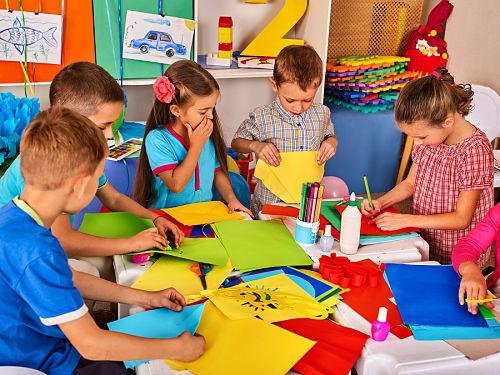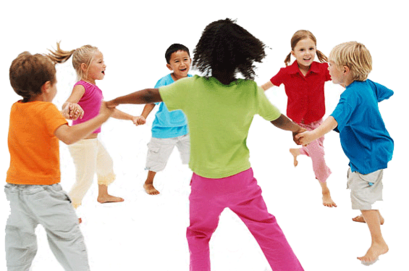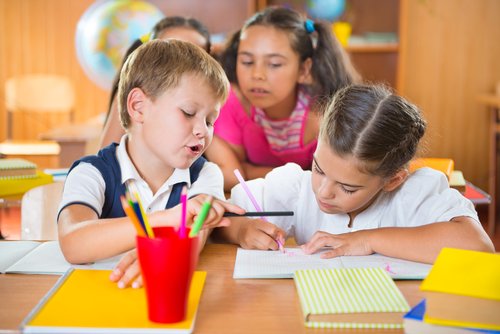Understanding the Perspective of Socialization

Image Source
Which is the more essential effect on behavior, nurture or nature, environment or heredity? This inquiry has been particularly imperative to the individuals who contemplate children. Albeit the two impacts are essential, one view underlines biological development, while another accentuates social learning.
Four Perspectives of Socialization
- Developmental Perspective
- Social Learning Perspective
- Interpretive Perspective
- Social Structure Perspective
Developmental Perspective
The human child clearly experiences a procedure of maturation. He or she develops physically, creates motor skills in a moderately uniform succession, and starts to engage in different social behaviors at about an indistinguishable age from most other children. A few theorists see socialization as generally reliant on procedures of physical and psychological maturation, which are biologically decided.
Gesell and Ilg have archived the succession in which motor and social skills create and the ages at which each new capacity shows up in the average child. They see the development of numerous social behaviors as basically because of physical and neurological maturation, not social variables.
Child Development Processes
- Visual Activity
- Interpersonal
- Vocal Activity
- Bodily Movement
- Manual Dexterity

Image Source
Social Learning Perspective
While the developmental perspective spotlights on the unfolding of the child's own particular capacities, the social learning perspective underscores the child's securing of cognitive and behavioral skills in interaction with the environment. Fruitful socialization requires that the child get extensive data about the world. The child must find out about numerous physical or natural substances, for example, what animals are hazardous and which things are palatable.
Children additionally should find out about the social environment. They should take in the language utilized by individuals around them to impart their requirements to others. They likewise need to take in the implications their parental figures connect with different actions. Children need to figure out how to recognize the sorts of persons experienced in their prompt environment. They have to realize what behaviors they can expect of individuals, and also others' desires for their own behavior.
As per the social learning perspective, socialization is essentially a procedure of children learning the mutual implications of the groups in which they are raised. Such variety in implications gives groups, subcultures, and social orders their uniqueness. Despite the fact that the substance fluctuates from group to group, the procedures by which social learning happens are universal.
This perspective accentuates the versatile nature of socialization. The infant takes in the verbal and interpersonal skills important to connect effectively with others. Having obtained these skills, children can propagate the implications that recognize their social groups and even add to or adjust these implications by presenting developments of their own.
Developmental procedures alone are not adequate for the rise of complex social behavior. Notwithstanding developmental availability, social interaction is important for the development of language. Both nature and nurture impact behavior. Developmental procedures deliver a status to play out specific behaviors. The substance of these behaviors is resolved essentially by social learning, that is, by cultural impacts.

Image Source
Interpretive Perspective
Socialization happens principally through social interaction. Though the social learning perspective underscores the way toward learning, for instance, the part of reinforcement in the procurement of behavior, the interpretive perspective, centers around the interaction itself. Drawing on emblematic interaction theory, this perspective perspectives the child's undertaking as the disclosure of the implications regular to the social group.
This procedure of disclosure requires communication with parents, adults, and other children. Particularly imperative is the child's investment in cultural schedules, which are repetitive and unsurprising exercises that are essential to everyday social life. Greeting ceremonies, regular games, and mealtime patterns are cases of such cultural schedules. These schedules give a feeling that all is well with the world and of having a place with a group. In the meantime, their consistency empowers children to utilize them to show their creating cultural learning and skills.
Development is a procedure of interpretive propagation. Children don't just learn culture. In every day interaction, children utilize the language and interpretive skills that they are learning or finding. As they turn out to be more capable in imparting and more proficient about the implications partook in the family, children achieve a more profound comprehension of the culture. Children, through interaction, obtain and repeat the culture.
At the point when children speak with each other, they don't just copy the gained culture. They utilize what they have figured out how to make their own to some degree extraordinary associate culture. Children take a traditional game, for example, "hide-and-seek" and change the standards to fit their needs and the social setting in which they are instituting the game. The changed principles turn out to be a piece of a new routine of hide-and-seek. Therefore, from an early age, children are not simply impersonating culture, but rather creating it.

Image Source
Social Structure Perspective
A fourth perspective underscores the impact of social structure. Socialization is definitely not an irregular procedure. Educating new individuals the principles of the game is too vital to ever be left to risk. Socialization is sorted out as indicated by the arrangement of roles that newcomers to the general public customarily go through. Unmistakable socialization results are looked for the individuals who possess every part.
Along these lines, we anticipate that youthful children will learn language and essential standards overseeing such various exercises as dressing, eating, bowel and bladder control. Most preschool projects won't select a child who has not educated the last mentioned. Besides, social structure assigns the persons or associations in charge of delivering wanted results.
In a perplexing society, there is a grouping of roles and a comparing succession of socializing agents. From birth through adolescence, the family is essentially in charge of socializing the child. This perspective is sociological, it thinks about socialization as a result of group life. It points out our the changing substance of and duty regarding socialization all through the person's life.

Image Source
References:
Socialization
Psychological Process Involved in Socialization
The Health Benefits of Socializing
Child Development
Age and Environmental Factors Relate to Children's Readiness
Social Learning Theory
Social Influence on Positive Youth Development
Interpretive Reproduction in Children’s Play
Posted from my blog with SteemPress : https://steemme.000webhostapp.com/2018/06/understanding-the-perspective-of-socialization
thanks for this interesting and detailed post. As a father of two kids, I can confirm some of the above-mentioned aspects in socialization amongst kids. I am always fascinated how fast children are able to integrate into existing social groups if the later ones are open for it. This, however, depends a lot on the social environment the groups are living in (that's at least what I was able to observe).
Downvoting a post can decrease pending rewards and make it less visible. Common reasons:
Submit
Hello! Good day tnx for coming. Yeah, it's true children and young ones are easy gets socialized, but as parents we must and always open our eyes for them too. To guide them as always.
Downvoting a post can decrease pending rewards and make it less visible. Common reasons:
Submit
We parents never should stop guiding them, no matter what age. Sadly, with kids growing up and start to become independent in certain spaces, a lot of parents let them go without any guidance. 😩
Downvoting a post can decrease pending rewards and make it less visible. Common reasons:
Submit
That's the sad part of the others too, maybe they think they're children is old enough for that, but parenting never ends as long as we lived.
Downvoting a post can decrease pending rewards and make it less visible. Common reasons:
Submit
That’s exactly how we (my wife and me) see it. Happy to see that there are still others seeing it like we do.
Downvoting a post can decrease pending rewards and make it less visible. Common reasons:
Submit